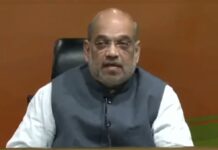Delhi Traders held a two-day strike that began on Friday and ended on Saturday. The traders resumed to normal business on Sunday terming their protest a success. The bandh march was a protest against the Municipal Corporation of Delhi’s (MCD’s) sealing drive which entails shutting down businesses in a residential area due to their non-payment of conversion fee. The conversion fee is essential for the conversion of the residential buildings into a commercial one.
In a move to provide a reprieve for traders affected by the Delhi sealing drive, the Delhi Development Authority (DDA) made approved changes to the Master Plan on Friday amidst protesting pressures of lakhs of traders who had closed their businesses.
Efforts to Stop the Bandh
DDA made a speedy resolution on Friday with the hope of ending the strike before Saturday. It proposed amendments to the Master Plan, some of which included increasing Floor Area Ratio (FAR) in Local Shopping Complexes from the standard 180% to 300% and standardizing agricultural warehouses on 12-meter roads.
Despite DDA’s objective to derail the march, Traders soldiered on and continued with their shutdown on Saturday because of the belief that the DDA meeting on Friday had no visible impact on stopping MCD’s ongoing sealing drive.
Saurabh Bharadwaj, the Aam Aadmi Party (AAP) Chief Spokesman, said that despite efforts by BJP to call off the strike after DDA’s meeting on Friday, the traders continued their strike on Saturday because they did not see any impactful solution to ending the sealing drive. Saurabh demanded that the sealing drive should not just be stopped but also businesses already sealed be de-sealed.
The Confederation of All India Traders Calling the Shots
The Confederation of All India Traders (CAIT) is responsible for the two-day bandh amongst Delhi traders. CAIT called on traders on Friday to down their tools to exert pressure on MCD to put a stop on the ongoing Delhi sealing drive. The sealing drive will cause most businesses to shut down.
CAIT sent a charter to the government urging it to keep the status quo (not to seal traders) in special areas until a redevelopment plan is in place and implemented. It also informed government the Local Shopping Complexes (LSC) declared in 1998 that charges on FAR should be the same when it was proposed that LSCs be increased from 175 to 250 meters.
CAIT National Secretary General, Praveen Khandelwal, stated that the bandh was spontaneous and successful as it expressed the anguish of traders over the arbitrary sealing drive.




